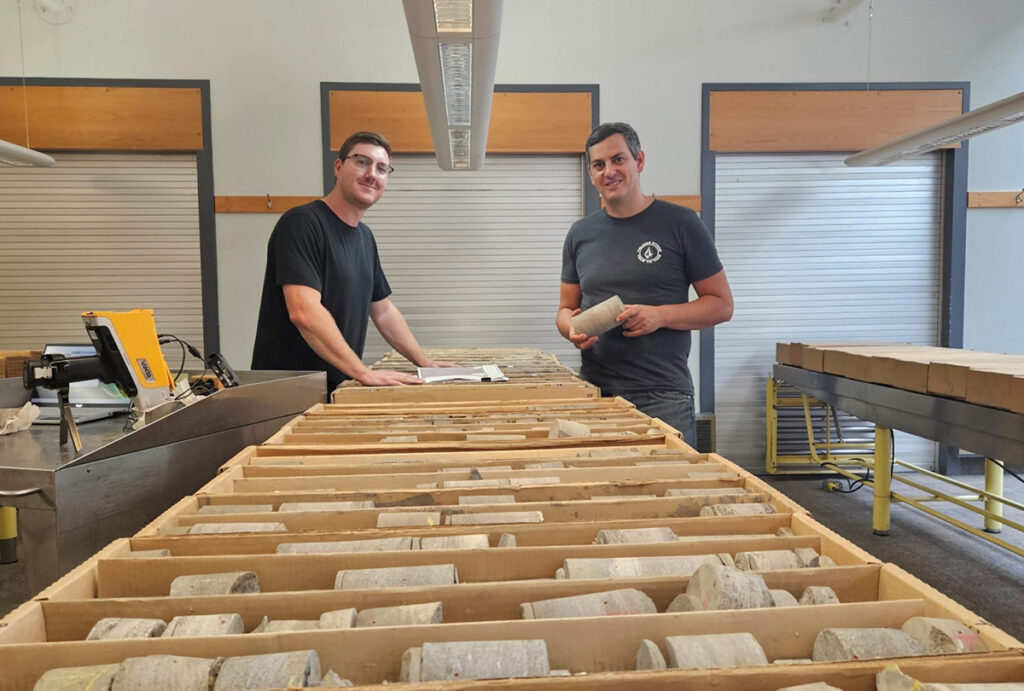CEC research shows small businesses are the engine of Canada’s oil and gas industry
By James Snell
Follow CEC on Linkedin CEC Linkedin
Follow CEC on Facebook CEC Facebook
Follow CEC on Twitter CEC Twitter

Tom Weedmark (right) and Justin Bestplug at the Alberta Energy Regulator Core Research Centre in Calgary. Photo by James Snell for the Canadian Energy Centre
Master Corporal Tom Weedmark completed a tour in Afghanistan with the Canadian Armed Forces before starting a small business in Canada’s oil and gas sector in 2012.
In partnership with Calgary’s Cabra Consulting, the 38-year-old masters level geologist started XRF Solutions, which takes geological evaluation in the wellsite sector to the next level. Using portable X-ray fluorescence (XRF) guns, Weedmark and his business partner Justin Bestplug provide unique chemical analyses that can help oil and gas companies better understand rock formations deep underground.
“Our whole philosophy was we needed to prove that our technology is valuable and useful,” says Weedmark of the two-person company. “That’s been the story of our small business – proving a technology.”
According to Canadian Energy Centre research, small businesses make up the vast majority of oil and gas firms in Canada. Approximately 96 per cent of companies have fewer than 100 employees – outpacing the U.S., Norway, and the European Union.
In Canada, the oil and gas sector has a higher proportion of small businesses than any other major industry, except construction.
“We’ve always looked at Alberta and western Canada as the Silicon Valley of the energy service space,” says Mark Scholz, CEO of the Canadian Association of Energy Contractors.
“It’s a very dynamic and very important sector and element of the western Canadian economy.”

XRF Solutions’ X-ray fluorescence gun in action. Photo by James Snell for the Canadian Energy Centre
At XRF Solutions, not only has Weedmark pushed new technology into a demanding marketplace, but he has also learned how to run a business. Taxes must be filed, books kept, and people paid. He has also learned to manage the cyclical nature of the oil patch.
“When things are good, it’s really good, and when times are rough, it’s really rough,” he says. “We have to create our own work. I have to do the convincing, although most of our business is word of mouth.”
A great upside for XRF Solutions is the company has few competitors, says Weedmark – his groundbreaking work with data interpretation and using XRF as a practical tool has carved a path for a few others in Calgary’s XRF industry.
“Our five-year vision is to keep developing the product,” he says. “I personally love the small business atmosphere.”
Scholz says he sees a period of sustained growth for the energy services sector, but a lot of issues could impact its potential.
“I think government policy is one that clearly is going to be something we are looking at very carefully,” he says, “[including] an emissions cap proposed by the federal government and very aggressive emissions targets.”
The unaltered reproduction of this content is free of charge with attribution to Canadian Energy Centre Ltd.
Share This:




